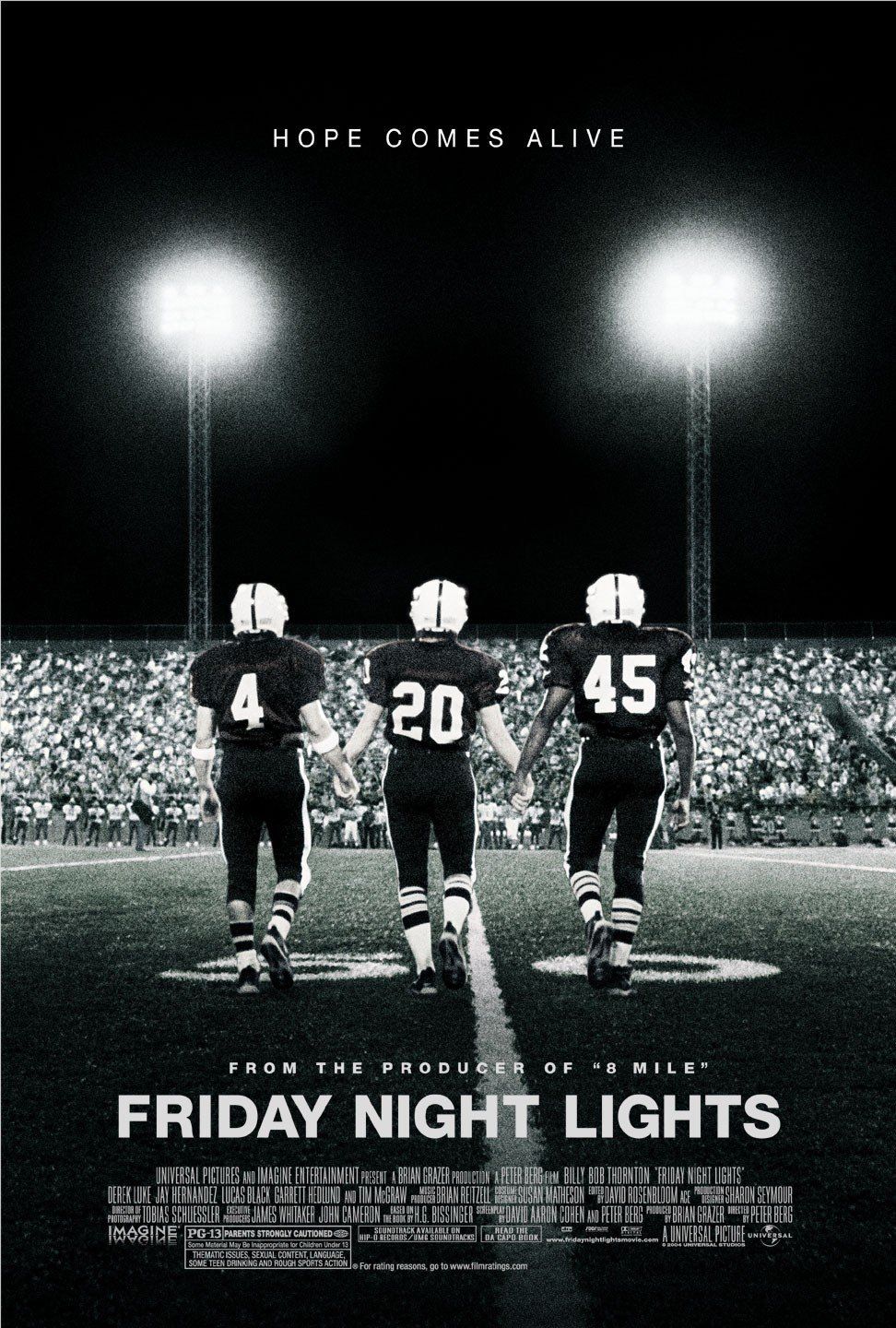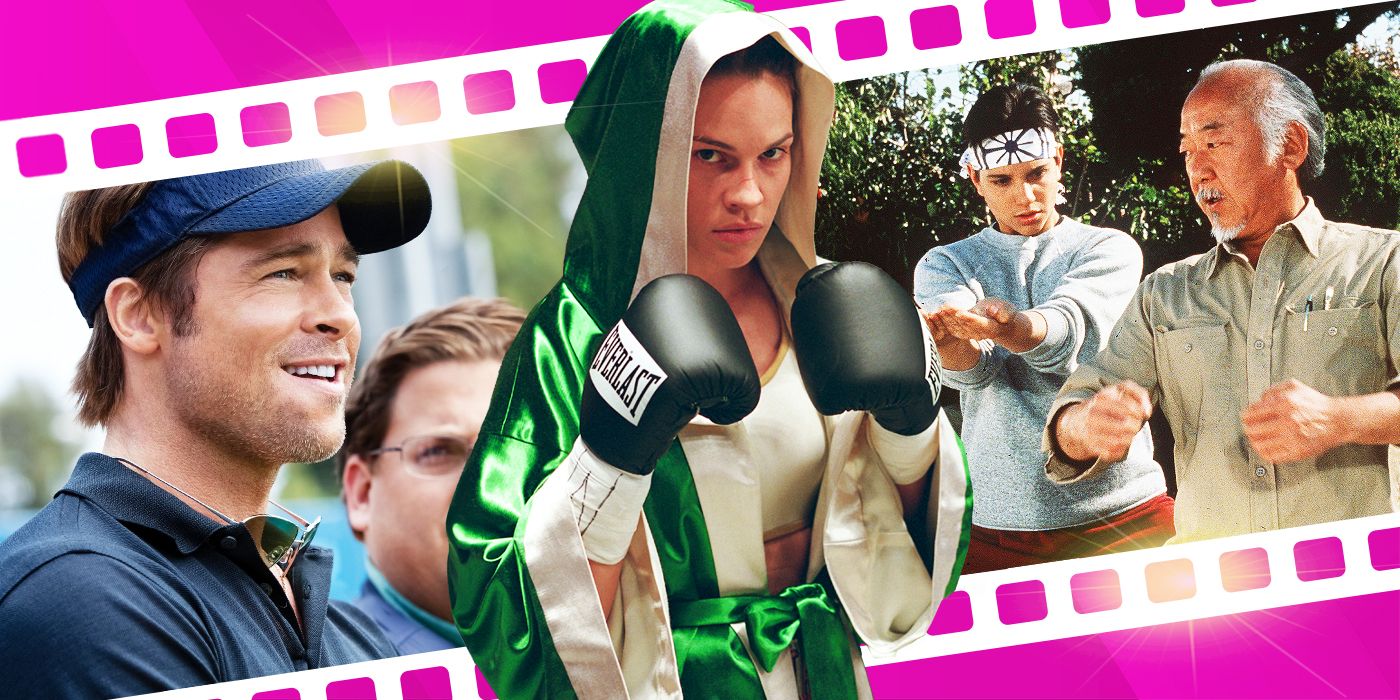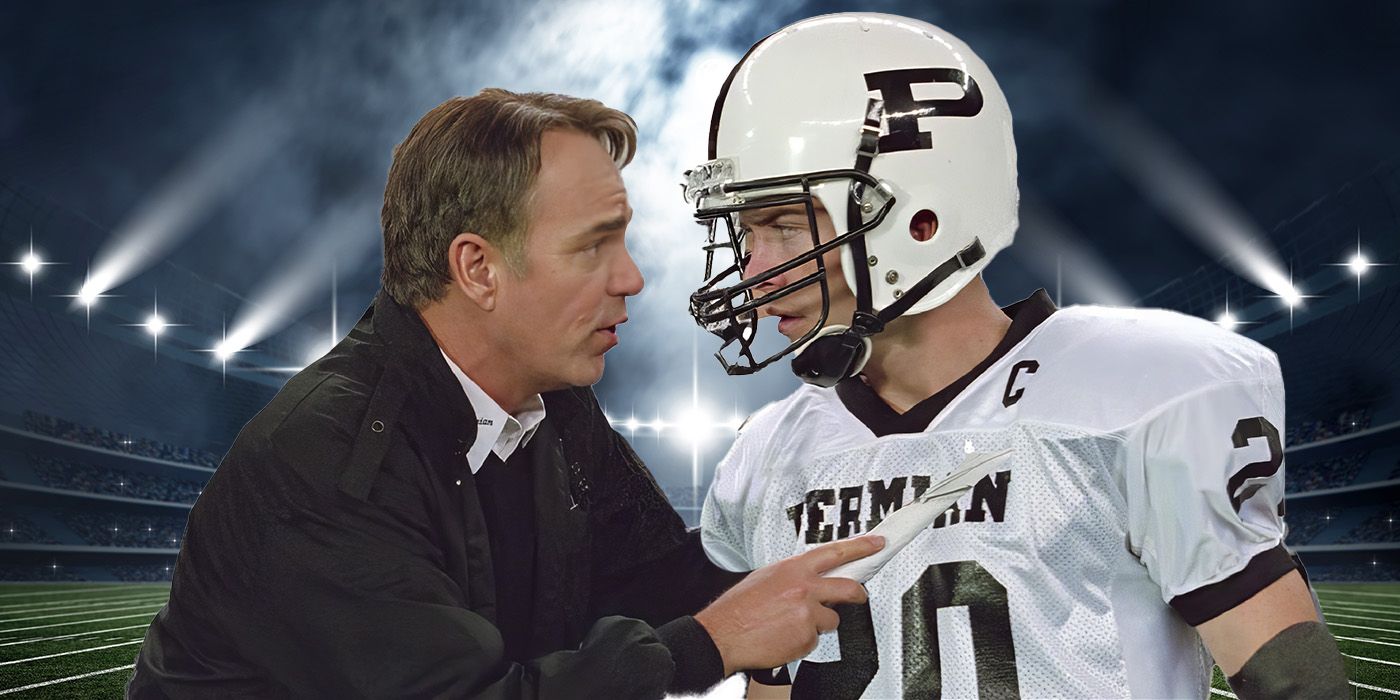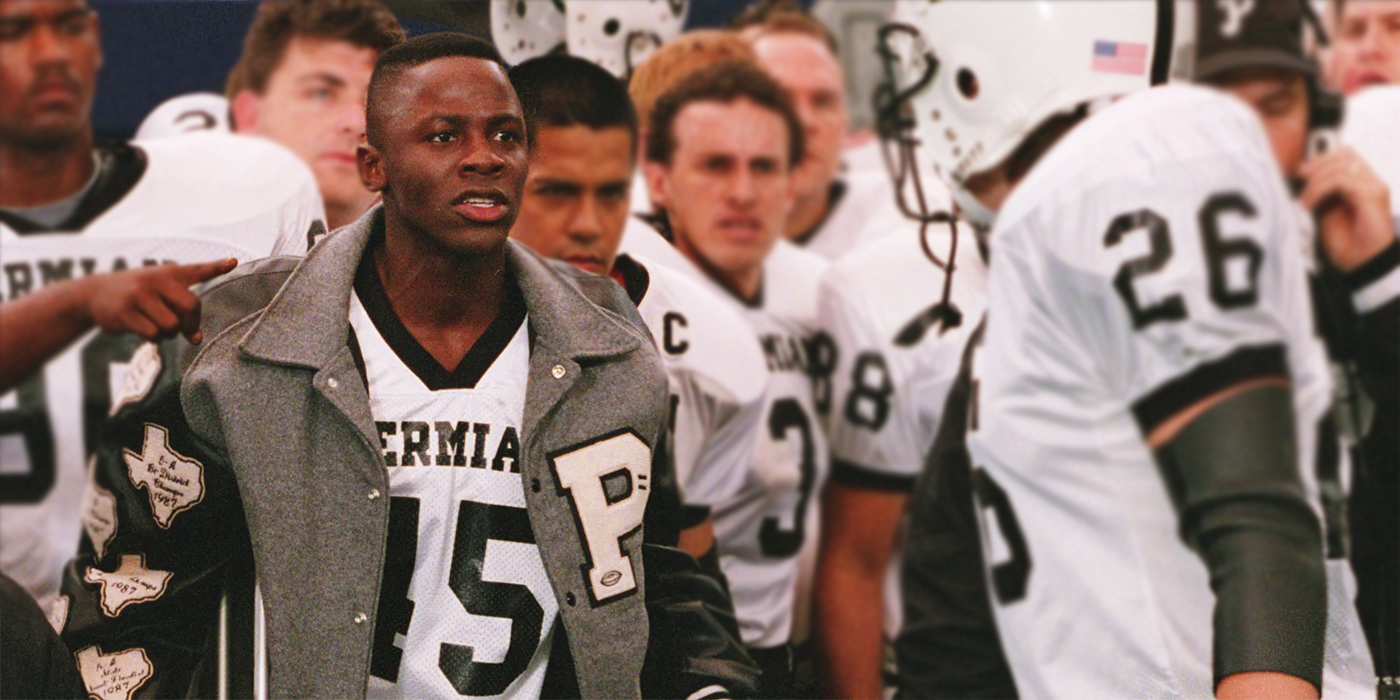The Big Picture
- Friday Night Lights is based on the best-selling book by journalist Buzz Bissinger; it follows the 1988 football season of Permian High School in Odessa, Texas.
- Although Bissinger's novel would go on to sell 2 million copies and spawned the 2004 film and a hit TV series, the citizens of Odessa felt bitter about how they were portrayed in the book. To this day, Bissinger is no longer welcome at Odessa-Permian events.
- The book-turned-movie highlights the intense pressure and adoration towards high school football in Odessa, Texas. Unfortunately, the film fails to address racial implications and the real-life outcome of the football players and community involved.
If you grew up in Texas, you know how important high school football is. If Sunday is for God and church, then Fridays are for your local varsity football team under the lights. So what do you do when something becomes almost as important as religion? Well, you make a movie about it. Friday Night Lights is a cinematic portrayal of the cult of football and how it affects the young men who play the game, their coaches, and the small towns in which they are at the center. But you better dot your "I"s and cross your "T"s, because if you misrepresent the sport of football in the Lone Star State, (especially if you aren't from Texas) there are hordes of Texans ready and willing to release the hounds of hell on you. Just ask Buzz Bissinger, who hails from New York City and was writing for the Philadelphia Enquirer. Bissinger is the intrepid scribe who took on the behemoth that is Friday night football in the great state, and what came from it will follow him and the people he wrote about for the rest of their lives.

Friday Night Lights
- Release Date
- October 8, 2004
- Director
- Peter Berg , Josh Pate
- Cast
- Billy Bob Thornton , Lucas Black , Garrett Hedlund , Derek Luke , Jay Hernandez , Lee Jackson
- Runtime
- 117
- Main Genre
- Action
- Writers
- Buzz Bissinger , David Aaron Cohen , Peter Berg
'Friday Night Lights' Is Based on a Best-Selling Book
As detailed in an interview with Fresh Air, when Buzz Bissinger decided in 1988 that he wanted to write about the phenomenon that is Texas high school football, he went to a college football recruiter and asked him which town best represented what it was all about. That recruiter didn't hesitate and directed him to the town of Odessa, Texas and the Permian High School program. So Bissinger moved his wife and two children to the central Texas town and started writing Friday Night Lights: A Town, A Team, and a Dream.
Bissinger had no idea what he was getting into. In Texas, high school football on Friday nights is a hallowed religious experience, especially in a small town in the middle of the dusty Texas plains whose other claims to fame are oil fertility and being a couple of hours' drive outside of Lubbock. The Head Coach of the program at the time was the legendary Gary Gaines (played by Billy Bob Thornton in the film), and he wielded more power than the mayor of Odessa. In a town like Odessa, where there is an almost cult-like environment surrounding the high school football team, sharing your thoughts on Gaines is akin to writing about a man who has achieved a quasi-Messianic status. His 16 to 18-year-old players were like rock stars. What became of Bissinger's account would later sell 2 million copies of his novel, spawning a movie called simply called Friday Night Lights, and a five-season TV series of the same name.
What Is 'Friday Night Lights' About?
The movie Friday Night Lights follows the 1988 football season of the Texas District 5A powerhouse football program at Permian High School in Odessa, Texas. In the season that is chronicled, the Permian Panthers advanced all the way to the State Semifinal game against another hallowed Texas program, Dallas-Carter High School. The star athletes on the '88 team were the talented quarterback, Mike Winchell (Lucas Black) and the elusive and lightning-fast running back, Boobie Miles (Derek Luke).

The 25 Best Sports Movies of All Time, Ranked
They're the best around. Nothing's gonna ever keep them down.The game was a clash of two titan programs that both had a "State Championship or go home mentality." There was everything to lose for these teenagers playing for Permian and the director, Peter Berg, really presses that upon the audience. By the time these teams get on the field together, the viewer is so emotionally invested that every play and every tackle keeps you on the edge of your seat. But once the movie is over, what became of Bissinger, the coach, and the players that have the weight of Texas high school football put on their shoulders?
Buzz Bissinger Is No Longer Welcome at Odessa-Permian Events
Some of the things that Bissinger wrote about in his book didn't go over very well with the football-crazy town of Odessa. He spoke in his Fresh Air interview specifically of how a lot of the locals felt misrepresented as racist:
"Did they trust me? Of course. Did [I] want them to trust me? Of course. But when I hear the n-word used repeatedly, when I heard the n-word used to describe a tragic black running back ... who is now in prison, when I heard those things, what am I going to do? Not put it in? Issue a Miranda warning saying, "Don't say that anymore! Don't go there!"
The running back he is referring to is Boobie Miles. He expounded on what he perceived as Permian using Miles as a ringer and ignoring his education:
"Boobie was basically treated as a football animal. He was pushed through school without any demands. He basically had a tutor who gave him the answer to all the questions. There was no attempt to educate him at all. I never saw him play because in a preseason scrimmage, in a silly play that was meaningless, his cleat got caught in the turf, he blew out his knee."
Bissinger says he still communicates with the now 53-year-old Miles, who is serving a 13-year sentence relating to failure to register as a sex offender.
Bissinger was not invited to the 25th anniversary of the storied season, and Permian and the people of Odessa still hold a grudge. The running back who came in and replaced Boobie in the movie, Chris Comer, died in 2018 at just 46 years old. Heroic quarterback Mike Winchell currently works for an oil field services company outside of Denton, Texas, which is an hour north of Dallas. Legendary coach Gary Gaines, however, would go on to win 6 state titles, including the year following Friday Night Lights in 1989 at Permian. He passed away from Alzheimer's Disease in 2022 at the age of 73.
'Friday Night Lights' Is Actually a Story About Racism in Odessa College Football
The grand finale of Friday Night Lights is the game between white middle-class players from Odessa Permian, and Black, inner-city players from Dallas-Carter. There is a heavy, problematic way in which the film clearly portrays the privileged white athletes as the "heroes" overcoming everything and trying to beat a team full of physically imposing Black players who play dirty. David Green wrote a piece for NPR about this dichotomy:
"In the film, Thornton tells his team that to win state, they'll have to beat 'a team of monsters' from Carter High School in Dallas... Carter High School is really an afterthought in Friday Night Lights — the evil, thug-like team that stole a championship."
When you watch Friday Night Lights now, it reinforces how much the film fails in its opportunity to confront racism in athletics, and more specifically, Odessa's long history of racism. Another thing the movie fails to mention is that Dallas-Carter would go on to win the Texas State title that year after disposing of Odessa Permian. Twenty years later, the questionable and loaded way in which Black athletes from an all-Black school are portrayed signals the film's missed opportunity to address racial relations head-on.




